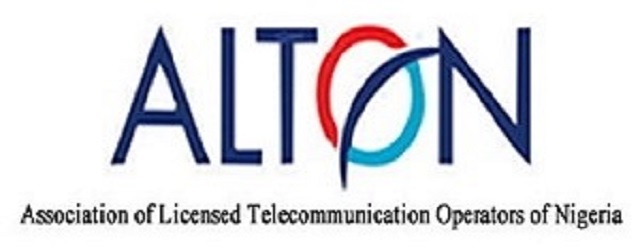News Highlights:
- Rising Vandalism Threatens Telecom Infrastructure Nationwide
- Urgent Call for Government and Public Intervention
The Association of Licensed Telecommunications Operators of Nigeria (ALTON) has raised a red flag over the alarming rise in vandalism and theft of telecommunications infrastructure across the country, warning that the situation could lead to a total collapse of the nation’s communications network if urgent action is not taken.
In a strongly worded statement jointly signed by ALTON Chairman, Engr. Gbenga Adebayo, and Publicity Secretary, Barr. Damian Udeh, the association expressed deep concern over the wave of destruction targeting critical telecommunications installations, particularly in the wake of unprecedented investments by industry stakeholders aimed at boosting network capacity and service delivery nationwide.
Following the Federal Government’s decisive interventions earlier in the year to sustain the sector, telecom operators have been actively upgrading systems, deploying modern transmission equipment, overhauling power systems, and laying thousands of kilometres of fibre optic cables. However, the association lamented that these gains are now under threat due to rampant vandalism.
Between May and July 2025, numerous cases of sabotage were recorded across cell sites in Rivers, Ogun, Osun, Imo, Kogi, Ekiti, Lagos, the Federal Capital Territory, and several other states. The destruction has led to widespread connectivity blackouts, service degradation, and has affected millions of subscribers.
ALTON disclosed that critical components—including power cables, rectifiers, fibre optic and feeder cables, diesel generators, batteries, and solar panels—are being stolen from active sites. These components, the association emphasized, are not mere assets but are the backbone of the nation’s digital economy, security infrastructure, and communication systems.
The frequency and spread of the attacks are particularly disturbing, with Delta, Cross River, Akwa Ibom, Ogun, Ondo, Edo, Kogi, Kaduna, Niger, Osun, Kwara, and Abuja among the worst-hit areas. The consequences, ALTON noted, include prolonged service downtimes, network congestion, and widespread service disruption.
Citing Federal Government Gazette No. 133, Volume 108, dated March 17, 2021, ALTON reminded the public that telecommunications infrastructure is classified as Critical National Infrastructure (CNI), and any act of vandalism or sabotage constitutes a serious criminal offense with dire legal consequences.
The association further warned of a growing black market for stolen telecom equipment, such as base station batteries resold for home and office inverters, solar panels stripped and sold to households, power rectifiers diverted to open markets, and diesel fuel siphoned and traded illegally.
ALTON urged the public to avoid purchasing such items, stressing that buyers are not only complicit but also criminally liable.
The group called on Nigerians to actively join in protecting telecom infrastructure, which plays a vital role in enabling banking operations, emergency response systems, security networks, education, healthcare, and everyday communication.
“An attack on telecom infrastructure is an attack on our economy and our security,” the statement read.
Another major concern raised is the frequent damage to underground fibre optic cables caused by road construction and civil works along major highways and in urban areas, which often results in significant service outages and economic loss.
In response, ALTON appealed to key national security agencies—including the Office of the National Security Adviser, the Inspector General of Police, the Department of State Services (DSS), and the Nigeria Security and Civil Defence Corps (NSCDC)—to urgently deploy resources to protect telecom infrastructure nationwide.
The association commended the Nigerian Communications Commission (NCC) for its proactive initiatives, particularly the launch of a reporting platform that allows the public to report vandalism or suspicious activity via protect@ncc.gov.ng or by calling 622.
Concluding, ALTON made a passionate plea for coordinated national action involving all stakeholders—government, regulators, security agencies, civil society, the media, and the general public, to safeguard the country’s communications lifeline.
“This is a desperate and urgent hour. The time to act is now,” the statement emphasized.

